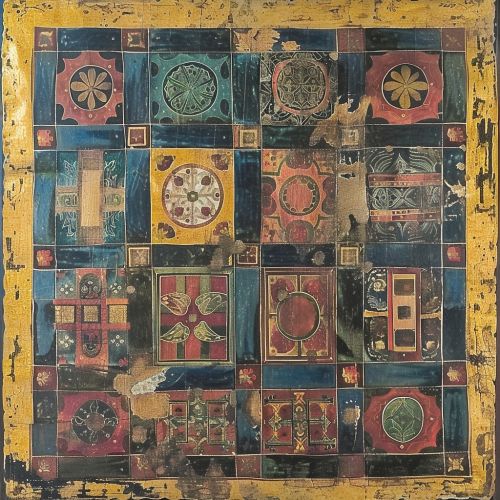Christian theology: Difference between revisions
No edit summary |
No edit summary |
||
| Line 3: | Line 3: | ||
Christian theology is the study of Christian belief and practice. It examines topics such as [[God]], [[Jesus]], [[Salvation]], [[Eschatology|the end times]], and the [[Trinity]]. Theology is derived from the Greek words 'theos' (God) and 'logos' (word), and thus, it is essentially a 'word about God'. It is a discipline that uses scripture, reason, tradition, and experience to explore and express the content of the Christian faith. | Christian theology is the study of Christian belief and practice. It examines topics such as [[God]], [[Jesus]], [[Salvation]], [[Eschatology|the end times]], and the [[Trinity]]. Theology is derived from the Greek words 'theos' (God) and 'logos' (word), and thus, it is essentially a 'word about God'. It is a discipline that uses scripture, reason, tradition, and experience to explore and express the content of the Christian faith. | ||
[[Image:Detail-79005.jpg|thumb|center|A collection of ancient Christian texts.]] | [[Image:Detail-79005.jpg|thumb|center|A collection of ancient Christian texts.|class=only_on_mobile]] | ||
[[Image:Detail-79006.jpg|thumb|center|A collection of ancient Christian texts.|class=only_on_desktop]] | |||
== Historical Development == | == Historical Development == | ||
Latest revision as of 13:43, 16 May 2024
Introduction
Christian theology is the study of Christian belief and practice. It examines topics such as God, Jesus, Salvation, the end times, and the Trinity. Theology is derived from the Greek words 'theos' (God) and 'logos' (word), and thus, it is essentially a 'word about God'. It is a discipline that uses scripture, reason, tradition, and experience to explore and express the content of the Christian faith.


Historical Development
Christian theology has a rich and complex history, beginning with the life and teachings of Jesus Christ in the 1st century AD. The New Testament of the Bible, particularly the four Gospels, is the primary source of information about Jesus and his teachings.
Early Christian Theology
The early Christian theologians, also known as the Church Fathers, played a significant role in the development of Christian theology. They defended the faith against heresies, interpreted the Bible, and developed doctrines. Notable figures include Augustine of Hippo, Origen, and Athanasius.
Medieval Christian Theology
During the Middle Ages, Christian theology was heavily influenced by the works of Thomas Aquinas. His Summa Theologica is considered one of the most important works of medieval theology. It covers a wide range of topics, including the nature of God, the nature of man, and the relationship between the two.
Modern Christian Theology
Modern Christian theology has been shaped by numerous factors, including the Protestant Reformation, the Enlightenment, and the rise of liberal theology. Theologians such as Martin Luther, John Calvin, and Karl Barth have made significant contributions to the field.
Major Themes
Christian theology covers a wide range of topics. Some of the major themes include:
God
Christian theology affirms the existence of one God, who is eternal, omnipotent, omniscient, and omnipresent. God is understood as a Trinity, a single divine being existing in three persons: the Father, the Son (Jesus Christ), and the Holy Spirit.
Jesus Christ
Jesus Christ is central to Christian theology. He is believed to be the Son of God, the second person of the Trinity, who became incarnate and lived among humans. His life, death, and resurrection are seen as the means by which humans can attain salvation.
Salvation
Salvation in Christian theology is the act of God's grace in delivering humans from sin and its consequences. It is achieved through faith in Jesus Christ, who, through his death and resurrection, reconciled humanity with God.
The Church
The Church is understood as the body of Christ, a community of believers who are united in their faith in Jesus Christ. The Church is tasked with the mission of proclaiming the gospel and administering the Sacraments.
Conclusion
Christian theology is a vast and complex field, encompassing a wide range of beliefs and practices. It is a discipline that seeks to understand and articulate the Christian faith, drawing on scripture, tradition, reason, and experience. It continues to be a vital part of Christian life and thought, shaping the way believers understand God, the world, and themselves.
